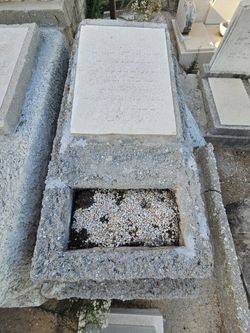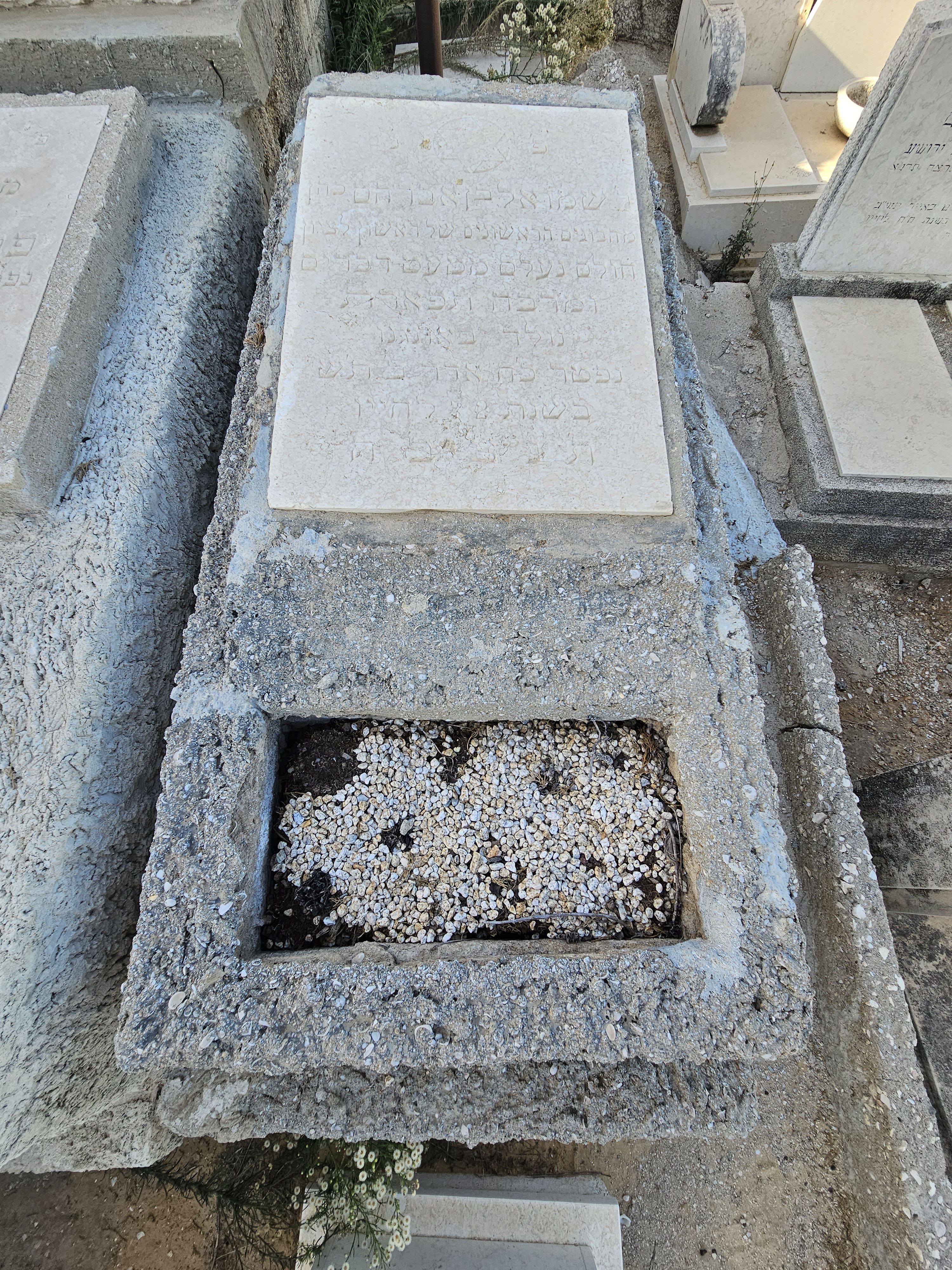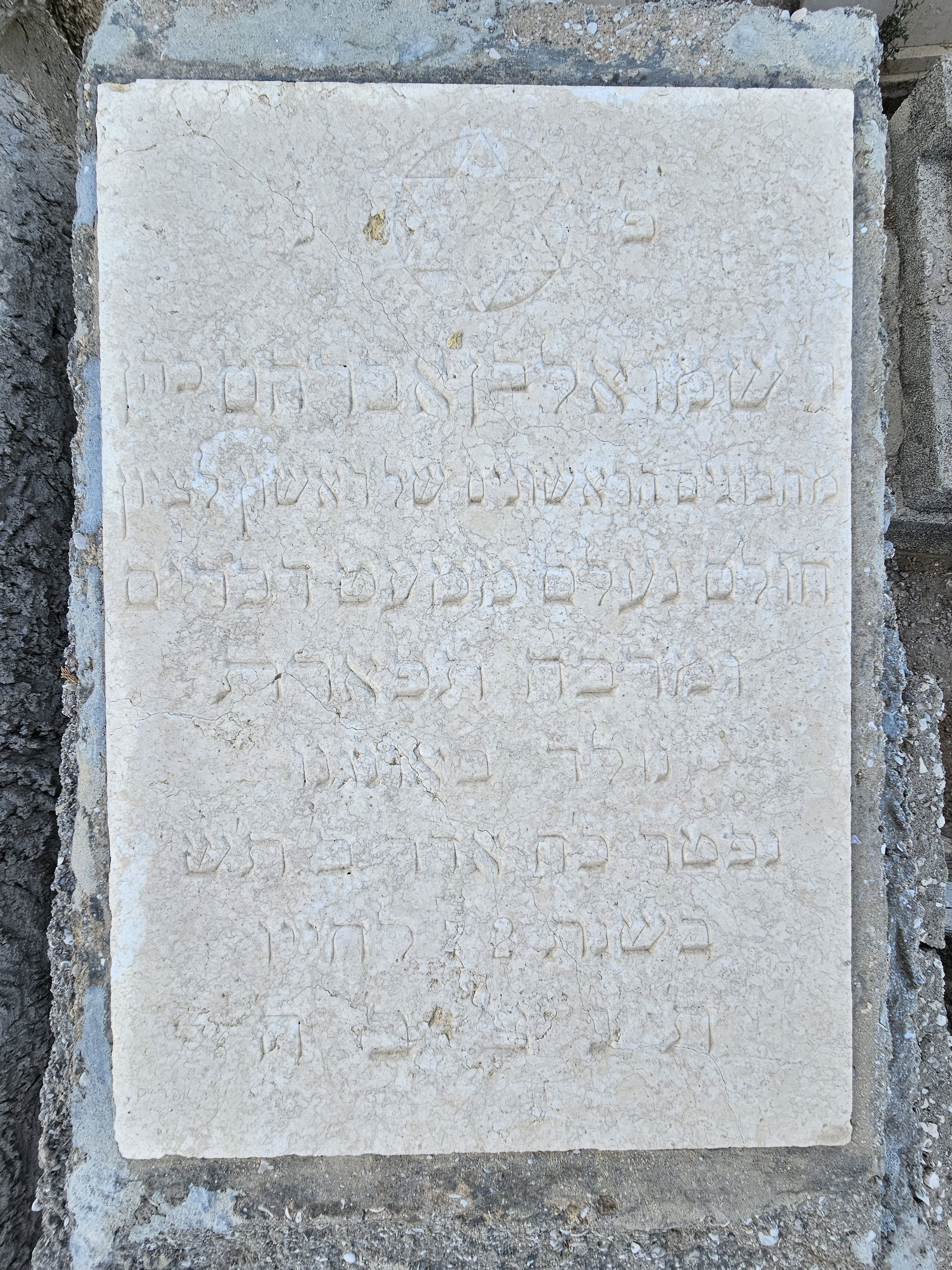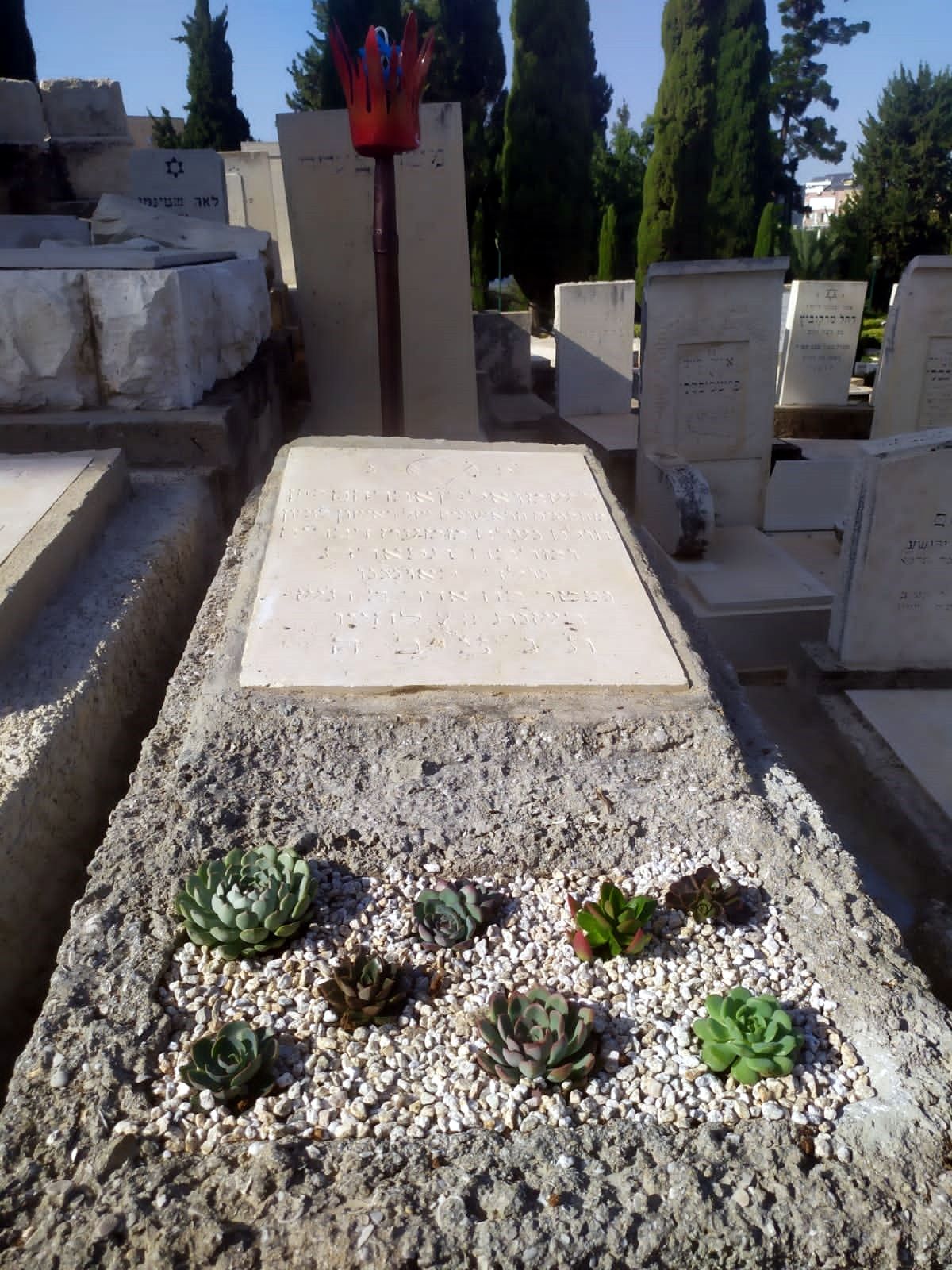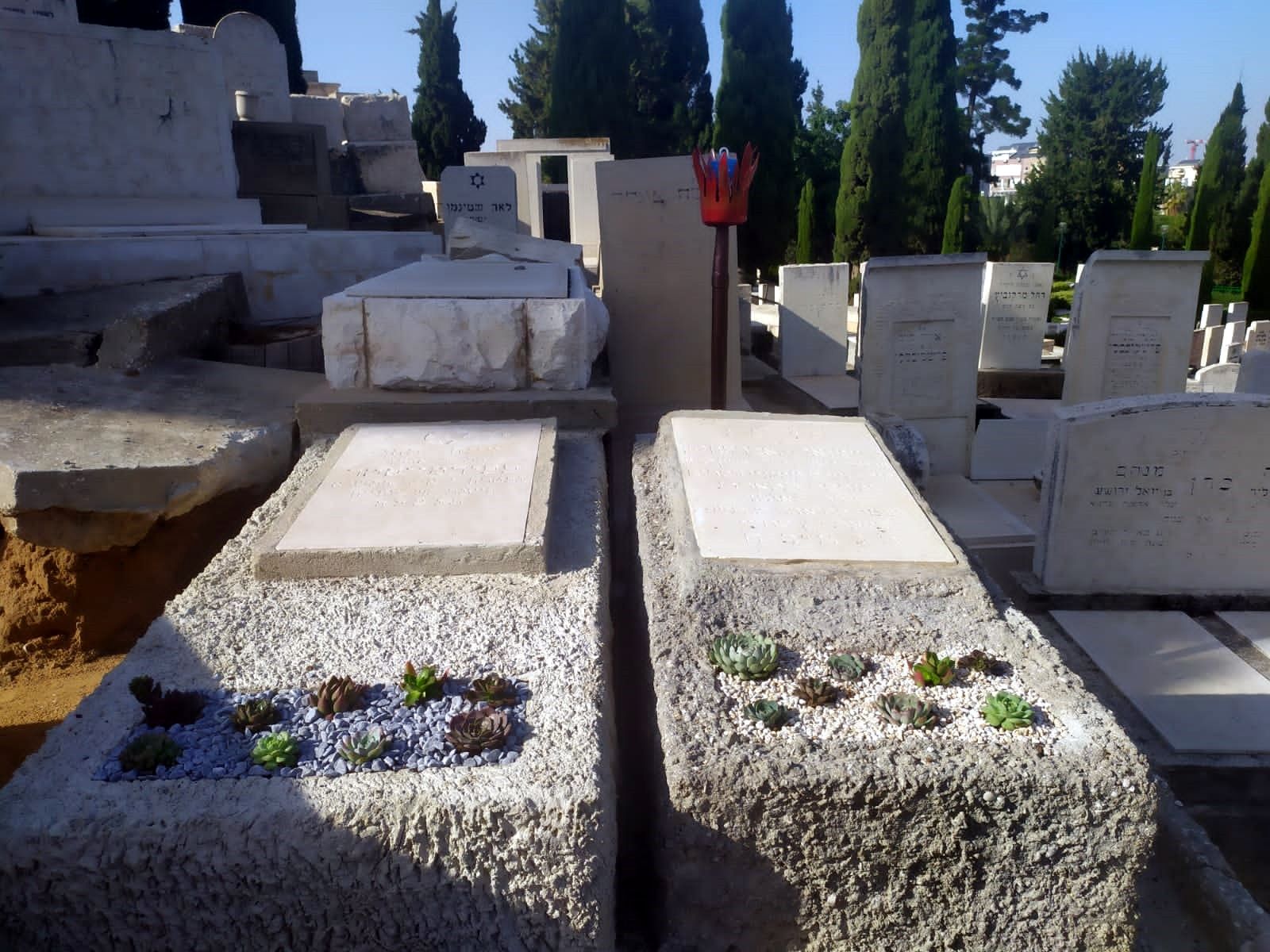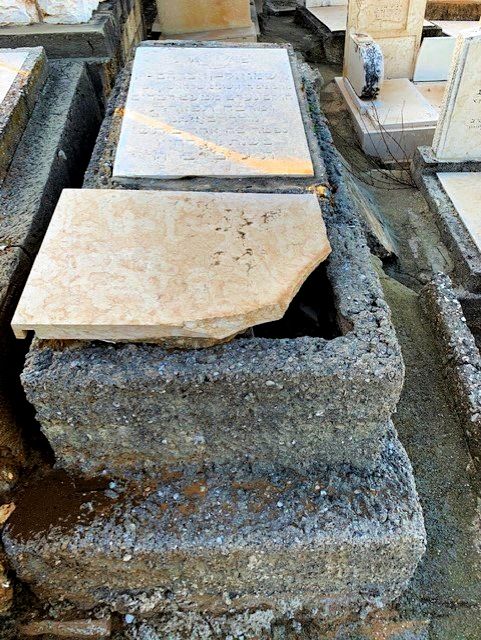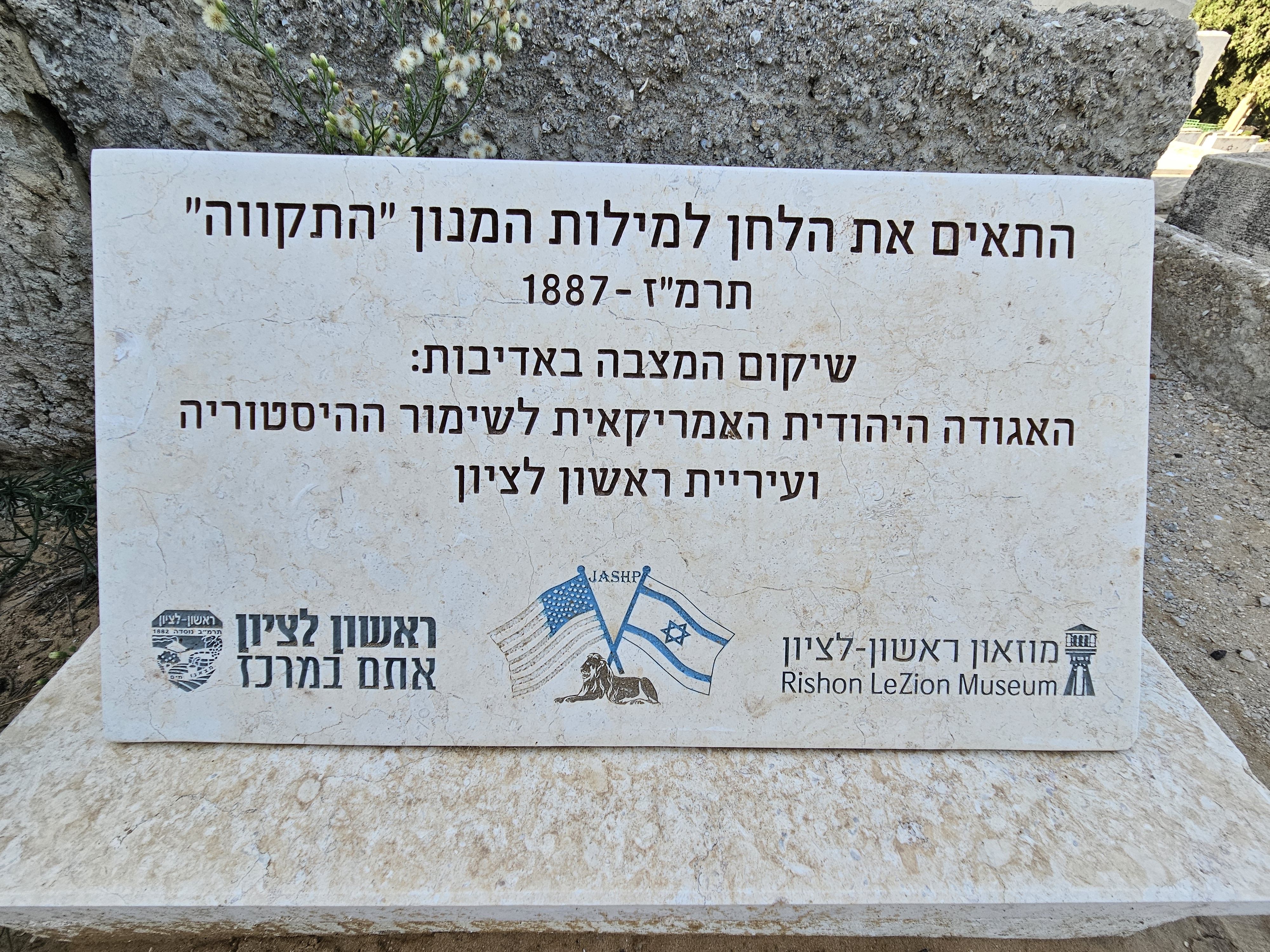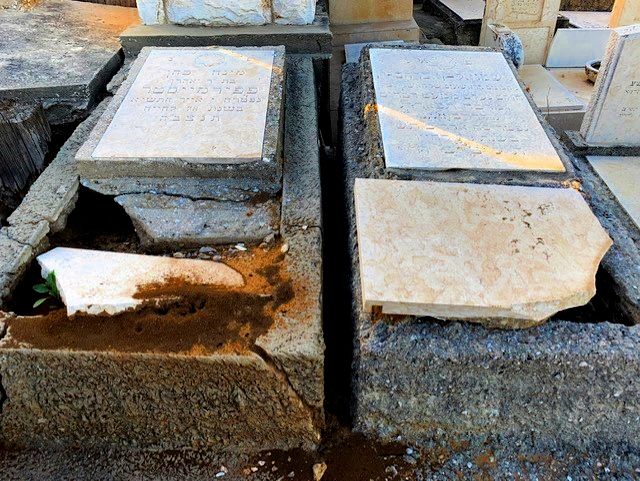Samuel (Schmuel) Cohen was born in 1870 in Ungheni, Moldova. He emigrated settling in Ottoman Palestine, near the Jewish agricultural colony of Rishon LeZion as part of the "First Aliyah" of 1882-1903. Cohen, like many of the 35,000 Eastern European immigrants who came, sought to escape Russian dominated oppression, pogroms, and rabid anti-Semitism. They came with the ideals of political, national, and spiritual resurrection of the Jewish people as their guiding life vision.
Cohen would marry and spend the rest of his life in Rishon LeZion, working to fulfill the hope, the dream, of rebuilding the ancient Jewish homeland. Cohen died in 1940 and was interred modestly with his wife in the "Old Rishon LeZion" Cemetery.
Inspired by the poem Tikvatenu, Our Hope, written by Naphtali Imber in 1877, Cohen is broadly attributed with blending a series of musical influences from his former home in Moldova to interpret the poem through music. Cohen's musical influences were drawn from folk, liturgical, Jewish, non-Jewish, and classical elements. The blended musical composition that emerged, 1888, exponentially grew in popularity.
Cohen's music, and Imber's poem, were adopted as the Organizational Anthem at the first Zionist Congress in 1897. The Anthem named The Hatikvah, The Hope.
The Hatikvah, spreading globally in acceptance, became the Zionist vision of Jewish national aspiration. Reportedly sung by Jews being driven to the gas chambers during the Holocaust, by Jews recorded after liberation in Bergen Belsen, by Holocaust survivors on board the famed American survivor rescue ship the Exodus, was accepted as the unofficial national Anthem of Israel in 1948. In 2004, The Hatikvah became the official Anthem of the State of Israel.
Today, Imber's original poem has gone through a number of permutations. Most Jews outside of Israel sing the words without understanding the Hebrew or comprehending the meaning. Cohen's music has remained unmutated, constant, instantly recognized. It is generally stirring to every Jew globally. The music tingles the emotional bond of Jews to the 2,000-year-old promise of a national home in their ancient homeland, Israel, where they can again determine their own future and fate.
Cohen's, and his wife's graves, sadly severely neglected and deteriorated, have been restored, and reinterpreted with respectful dignity, by the Jewish American Society for Historic Preservation.
Samuel (Schmuel) Cohen was born in 1870 in Ungheni, Moldova. He emigrated settling in Ottoman Palestine, near the Jewish agricultural colony of Rishon LeZion as part of the "First Aliyah" of 1882-1903. Cohen, like many of the 35,000 Eastern European immigrants who came, sought to escape Russian dominated oppression, pogroms, and rabid anti-Semitism. They came with the ideals of political, national, and spiritual resurrection of the Jewish people as their guiding life vision.
Cohen would marry and spend the rest of his life in Rishon LeZion, working to fulfill the hope, the dream, of rebuilding the ancient Jewish homeland. Cohen died in 1940 and was interred modestly with his wife in the "Old Rishon LeZion" Cemetery.
Inspired by the poem Tikvatenu, Our Hope, written by Naphtali Imber in 1877, Cohen is broadly attributed with blending a series of musical influences from his former home in Moldova to interpret the poem through music. Cohen's musical influences were drawn from folk, liturgical, Jewish, non-Jewish, and classical elements. The blended musical composition that emerged, 1888, exponentially grew in popularity.
Cohen's music, and Imber's poem, were adopted as the Organizational Anthem at the first Zionist Congress in 1897. The Anthem named The Hatikvah, The Hope.
The Hatikvah, spreading globally in acceptance, became the Zionist vision of Jewish national aspiration. Reportedly sung by Jews being driven to the gas chambers during the Holocaust, by Jews recorded after liberation in Bergen Belsen, by Holocaust survivors on board the famed American survivor rescue ship the Exodus, was accepted as the unofficial national Anthem of Israel in 1948. In 2004, The Hatikvah became the official Anthem of the State of Israel.
Today, Imber's original poem has gone through a number of permutations. Most Jews outside of Israel sing the words without understanding the Hebrew or comprehending the meaning. Cohen's music has remained unmutated, constant, instantly recognized. It is generally stirring to every Jew globally. The music tingles the emotional bond of Jews to the 2,000-year-old promise of a national home in their ancient homeland, Israel, where they can again determine their own future and fate.
Cohen's, and his wife's graves, sadly severely neglected and deteriorated, have been restored, and reinterpreted with respectful dignity, by the Jewish American Society for Historic Preservation.
Bio by: Jerry klinger
Inscription
Shmuel son of Avram Cohen
From the first builders of rishon LeZion
A vanished dreamer ,don't speak much
With much grace
Born in ongano
Died כ״ח אדר ב ת״ש
Gravesite Details
Severely deteriorated and neglected gravesite. Repair, upgrading and reinterpretation of the famous gravesite, and his adjacent wife's, being undertaken by the Jewish American Society for HIstoric Preservation.
Family Members
Advertisement
See more Cohen memorials in:
Explore more
Sponsored by Ancestry
Advertisement
